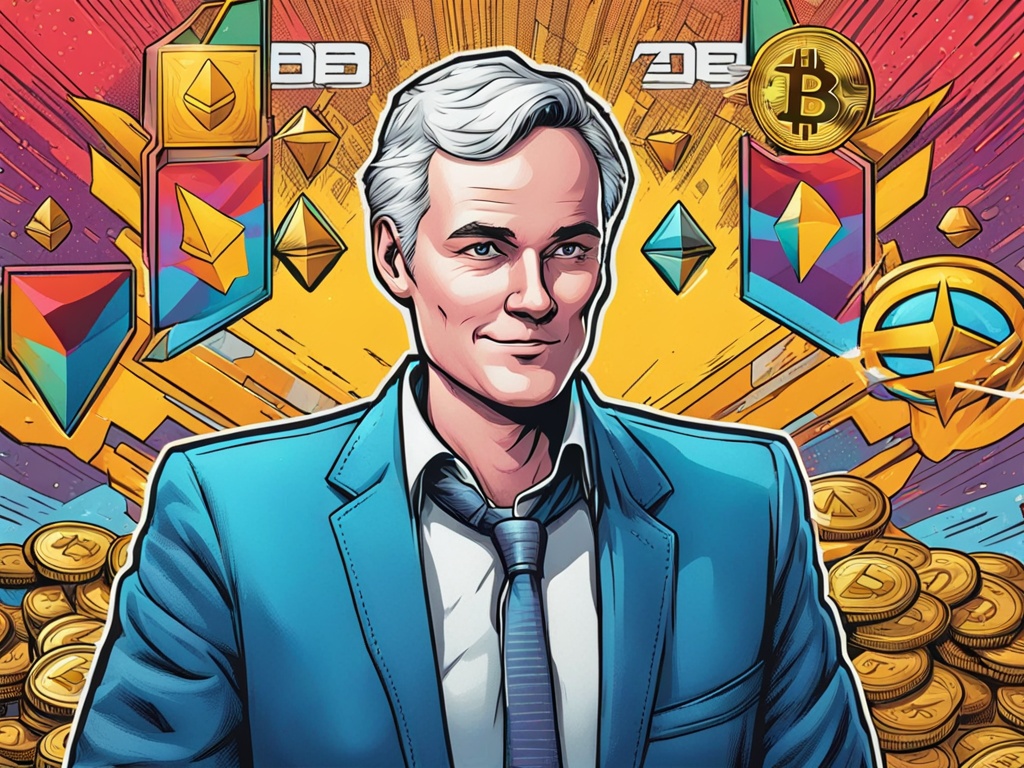What Does El Salvador’s New Loan Deal Mean for the Crypto Scene?
Alright, so imagine you’re at a bar, and the guitarist’s strumming one of those catchy tunes you can’t help but hum along to. Suddenly, the music shifts, and you realize this isn’t the jam you thought it was. That moment right there perfectly captures what’s happening in the crypto market regarding El Salvador’s new loan agreement with the IMF. It’s a twist that could affect not just the tiny Central American country but the broader crypto ecosystem.
Key Takeaways:
- El Salvador inks a $1.4 billion loan agreement with the IMF, but it comes with strings attached.
- The new deal alters the country’s Bitcoin strategy, making it less of a go-to for economic reform.
- The main goal of this agreement is to stabilize the economy and align financial regulations with international norms.
- The future of Bitcoin acceptance in El Salvador is being dialed back, impacting not just local enthusiasts but the global perception of crypto adoption.
So, let’s unpack this together.
To start off, after four long years of negotiations, El Salvador has finally signed a deal with the IMF. But if you think that this will mean sunshine and rainbows for Bitcoin, think again! In exchange for those shiny billions, El Salvador is being told to moderate its Bitcoin enthusiasm. They’re going to make Bitcoin acceptance voluntary for the private sector, and the government is gradually pulling its support from the Chivo wallet program. Sad trombone, right?
This move has led many to question whether Bitcoin, which was once seen as a revolutionary financial tool for the people of El Salvador, is now going to be treated like that one friend who always borrows money and never pays you back. The IMF’s Deputy Director, Luis Cubeddu, flat out stated that the new financial agreement is designed to "diminish risks" related to Bitcoin. You know it’s serious when they start using phrases like that!
The Financial Conditions Behind the Deal
It’s worth mentioning that this deal comes with a hefty set of criteria. To unlock this $1.4 billion, El Salvador must implement various economic reforms, including boosting its primary balance over three years. It needs to tighten its fiscal belt, especially since the country’s debt is peaking at a jaw-dropping 85% of its GDP! Think about it; that’s like a college student with a credit card bill that’s spiraling out of control.
What does that mean for us in the crypto space? Well, the more conservative approach the country is taking might discourage other nations from mirroring its initial Bitcoin strategy. If El Salvador can’t stick to its guns on Bitcoin, who will?
And while all these considerations loom, it’s worth mentioning that taxes will still be paid in U.S. dollars. So, the "dollarization" of El Salvador’s economy is here to stay, like that one ex who can’t seem to get the hint.
A Brief History of Bitcoin in El Salvador
Remember when President Nayib Bukele dropped the bombshell in 2021 by making Bitcoin legal tender? It was a mixed bag of reactions—crypto enthusiasts were excited, but financial analysts were on the edge of their seats. Institutions like the IMF and World Bank were less than thrilled, citing environmental issues and economic instability. You could almost sense the collective eye-roll from the traditional finance crowd.
Fast forward to present day, and the Chivo wallet program—which initially attracted over 3 million sign-ups thanks to a $30 Bitcoin giveaway—has underwhelmed in terms of sustainable usage. Bukele himself admitted that the reality of Bitcoin adoption didn’t quite live up to the initial hype. It’s like that tech gadget you waited months for, only to find out it doesn’t do half of the stuff the ads promised.
Reflecting on the Bigger Picture
So, what does all of this mean for crypto investors?
-
Practical Tip #1: Keep an eye on regulatory frameworks. El Salvador’s shift should signal a need to pay attention to how different countries approach digital currencies. Volatility isn’t just about market prices; it’s about policy too.
-
Practical Tip #2: Diversify your portfolio. If El Salvador, the first country to adopt Bitcoin as legal tender, is scaling back, it’s a reminder to spread your investments across various assets—don’t put all your eggs in one basket!
-
Practical Tip #3: Stay updated on macroeconomic indicators. With nations like El Salvador engaging with the IMF and aligning with international standards, it’s a good time to recalibrate your investment strategies based on these economic reforms.
- Practical Tip #4: Engage in community discussions. Being part of crypto forums or local meetups can provide insights and different perspectives that can help you make informed decisions.
Now, my personal insight? I see this as a sobering moment for the crypto community. It’s crucial to understand that while Bitcoin has the potential to bring financial liberation, it has to be approached responsibly. There are real economic factors at play that govern these decisions, and not all of them are friendly to our beloved cryptocurrency.
To wrap up, consider this: as we consider the future of Bitcoin and its adoption, let’s ask ourselves—are we ready to balance our ideals about crypto with the economic realities that governments face? What’s your take on the relationship between crypto and traditional finance as seen through the lens of El Salvador’s recent moves?





 By
By
 By
By


 By
By